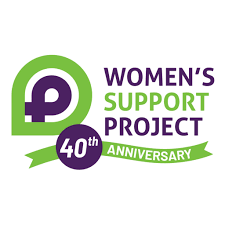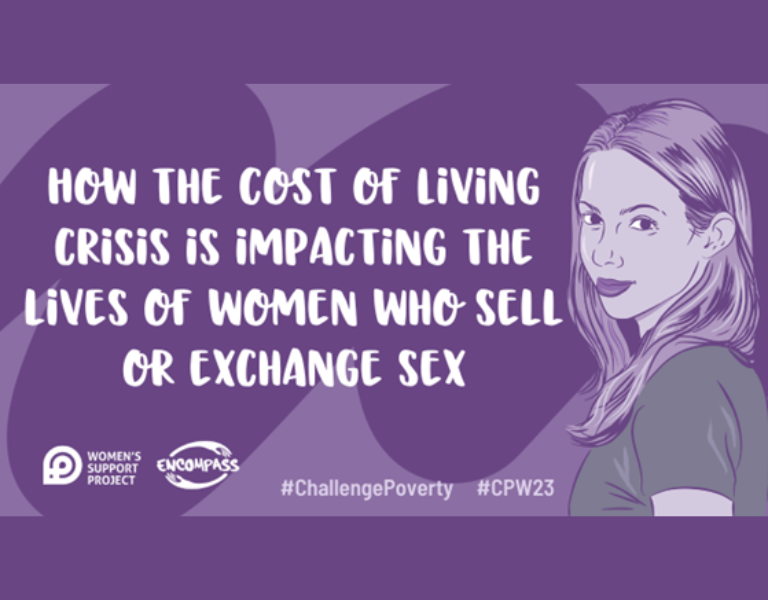

Women's Support ProjectCSE Aware
It is well known that women bear the brunt of poverty and financial crises, and COVID and the current cost of living crisis haven’t been the exception. Organisations like Engender and the Scottish Women’s Budget Group have reported how these crises have deepened the inequalities women experience when it comes to money and employment – for example, women have said they’re sacrificing their own food and heating so they can feed their children and family members and keep them warm.
Poverty and its related vulnerabilities mean that for some women selling sex is the most viable way to make enough money to pay bills, maintain their homes, care for their children and avoid destitution.
“… I work as an escort, to be able to give my children the basics (food, clothes, warmth, safety). Benefits don't stretch. I do it because I'm poor. I can't live off of benefits. I also have a chronic illness which effects me going for a proper job. Even then the minimum wage doesn't even cover living costs.” – Woman with lived experience as told to CLiCK Scotland
At the same time, women who were already involved in selling sex have reported increased financial pressures and risk of violence due to the cost of living, including punters/clients demanding more from women for less money, or using violence to get what they want.
“Women in our network describe how they are taking on extra shifts at brothels, working very long hours, or going out of town to work, which means they are working in unfamiliar areas, with clients they haven’t been able to properly screen.
The risk of attack is massively increased. Violent men know women can’t easily report violence to the police for fear that they will be arrested themselves.” – English Collective of Prostitutes interview with METRO
The poverty women are facing has also meant that many who want to stop selling sex are unable to do so and feel trapped in the ‘sex industry.’
It’s important to note that women involved in selling or exchanging sex were already facing poverty, financial pressures and many of the issues mentioned above prior to COVID and the cost of living crisis. However, these global events have exacerbated these pre-existing vulnerabilities.
Understanding the realities of women selling or exchanging sex and improving service responses
Earlier this year, at the Women’s Support Project we released a briefing in partnership with the Encompass Network which outlines the links between the cost of living crisis and involvement in selling or exchanging sex. It aims to ensure that services, agencies and the general public are informed of the realities of women involved in the ‘sex industry’ and know how to better support women and respond to their needs during and beyond this crisis.
The briefing covers:
- Women’s experiences of poverty and financial inequality
- Universal Credit as a push factor into selling sex
- Migrant women and No Recourse to Public Funds as a push factor into selling sex
- How the ‘sex industry’ has changed during the economic crisis
- Economic barriers that prevent women from moving on from selling sex
- Recommendations to support women who are selling or exchanging sex – or are considering this option.
You can download the full briefing here.
We also ran a cost of living crisis webinar this year and the recording is available upon request by emailing us on: enquiries@womenssupportproject.org.uk.
About the Women’s Support Project
Based in Glasgow, we work across Scotland to raise awareness of the root causes, extent, and impact of male violence and for improved services for those affected. One of our key themes is Commercial Sexual Exploitation (CSE) – our CSE Aware project focuses on improving services’ awareness of CSE and ensuring better service responses for women involved in selling or exchanging sex.
For more information about CSE Aware and related events and training, visit the dedicated website or get in touch.


Enter your email address to receive regular e-updates about our work. If at any time you want to stop receiving these, simply contact us. We’ll keep your details safe and won’t share them with any other organisations for their marketing purposes. For full details see our Privacy Policy.